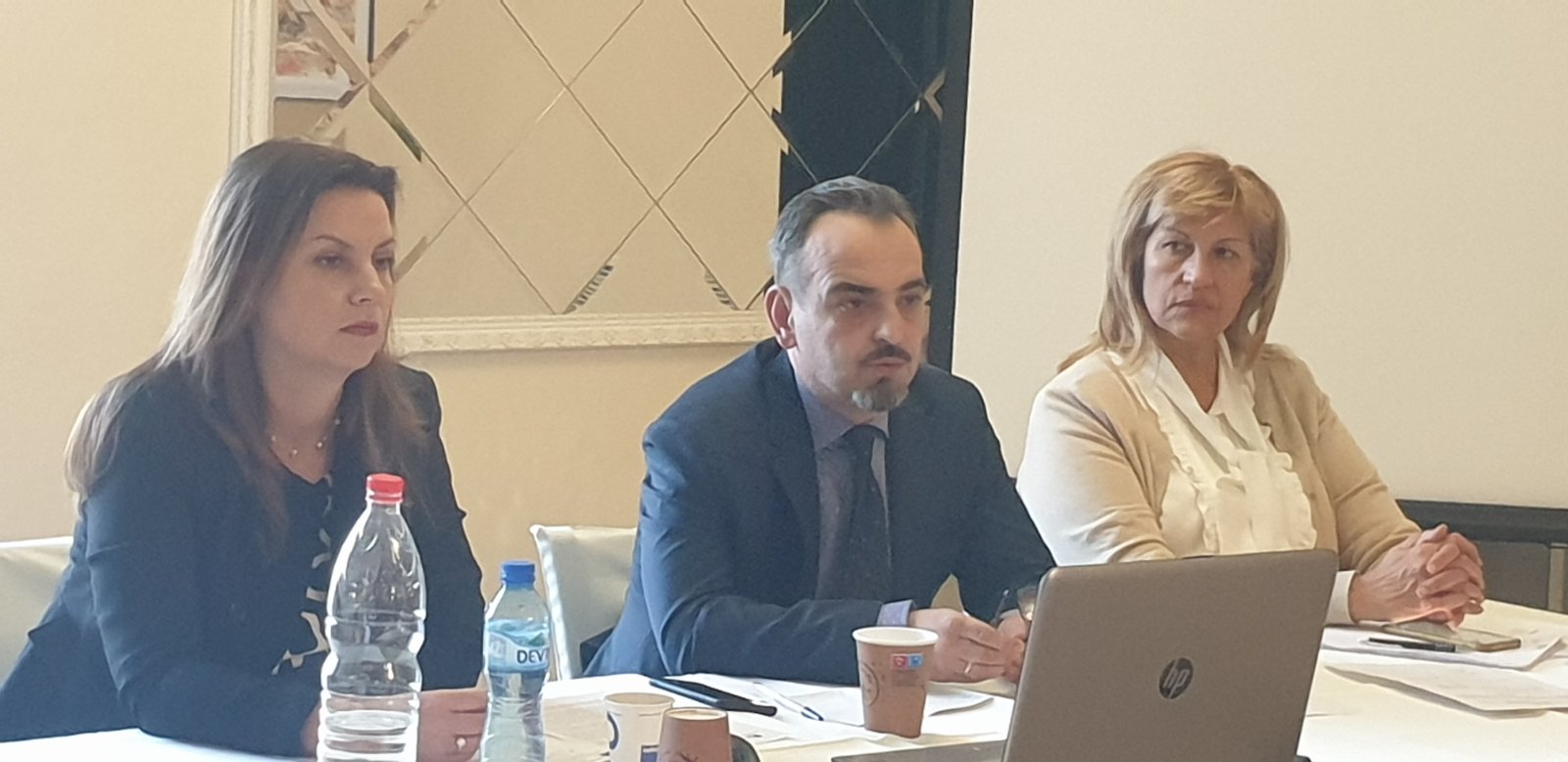The President of BIA Dobri Mitrev and the Vice President of the Association Maria Mincheva took part in the General Assembly of the Union of the Processors Fruit and Vegetables held today in Plovdiv. Mr. Mitrev presented to the participants in the meeting the position and the actions taken by BIA to speed up the normalization of the business environment in the country and manage the health and energy crisis.
In his speech, the chairman of BIA stressed that from the spring of 2020 until today BIA closely monitors the socio-economic processes, especially related to the COVID-19 crisis, and seeks to actively participate with positions and proposals in public dialogue on current economic issues.
"In the last 20 months, our team has been highly mobilized and I will not exaggerate if I share that we are practically available to our members around the clock. It was especially difficult in the first months of the pandemic, when there were too many unknowns and we all wandered in search of the right and optimal solutions, and things happened in an emergency and the need for a lightning reaction," said Dobri Mitrev.
He was adamant that overcoming the problems generated by the pandemic is of paramount importance to BIA and the Association does not intend to abandon the battle to save Bulgarian business, as it is most affected by all "health" measures. "In fact, our deep understanding is that the health of the economy is no less important than the health of the nation - these are connected vessels and one should not be prioritized at the expense of the other. We believe that the approach to crisis management was wrong from the very beginning and, unfortunately, over time, mistakes are multiplied, not reduced," said Dobri Mitrev. He reminded that at the very beginning of the crisis BIA insisted that in addition to the health headquarters, there should be an economic headquarters that would balance medical and economic decisions so as to preserve the viability of the economy. We have repeatedly asked the government to present an analysis of the effectiveness of the measures implemented and, on this basis, to apply any new restrictions.
"While other developed countries have implemented active support policies for their economies, Bulgarian business has received insultingly insignificant compensation, and such compensation has been very late and inaccessible to many economic operators. We find ourselves in a situation where "saving the drowning is the work of the drowning themselves." As a result, businesses are doing the (im)possible to save jobs and market positions, incl. by adapting costs, transforming production, using digital technologies, developing online sales, telecommuting, flexible working hours, vacations and staff optimization,” said Dobri Mitrev. According to him, the COVID crisis has created a shortage of working capital in almost 80% of enterprises. This, combined with years of problems with bureaucracy, regulatory and administrative burdens, an unstable regulatory environment, corruption and inefficient judiciary, puts heavy pressure on any business venture.
"Against this background, since the summer of this year we have experienced a new crisis - energy. Energy prices soared, and the state was once again unable to control the situation. And again the business took (and continues to take) the big blow! We are in a situation where the competitiveness and existence of enterprises are in question. In 2021, electricity prices for industrial consumers increased several times, simultaneously with the increase in price levels of carbon allowances - more than twice, from 30 to 65 euros per ton, with futures reaching 85 levels by the end of the year euro per ton. Accordingly, this requires the implementation of adequate measures at national and pan-European level," said the president of BIA. He informed about the main measures approved by the Board of BIA, which the Association insists to be taken in order to preserve and support the competitiveness of Bulgarian enterprises, namely:
In the short term:
- Application of a compensatory mechanism to enterprises, at least 50% of the amount that exceeds the estimated by the EWRC per megawatt-hour, in the form of compensation for business users. The measure needs to be applied for the full period of extreme and extreme energy price levels.
- Using the possibilities of art. 107 and 108 of the EU Treaty, as well as the existing rules of the temporary framework for state aid measures.
In the medium and long term:
- To take the appropriate and necessary measures and actions to reform the rules and requirements for conducting tenders on the Bulgarian Independent Energy Exchange regarding the longevity of contracts - an opportunity to organize tenders for the sale of band (base) cargo of long-term nature.
- To adopt long-term, consistent goals, deadlines and feasible plans for the transition to a low-carbon economy in terms of the commitments made so far by the Bulgarian state.






